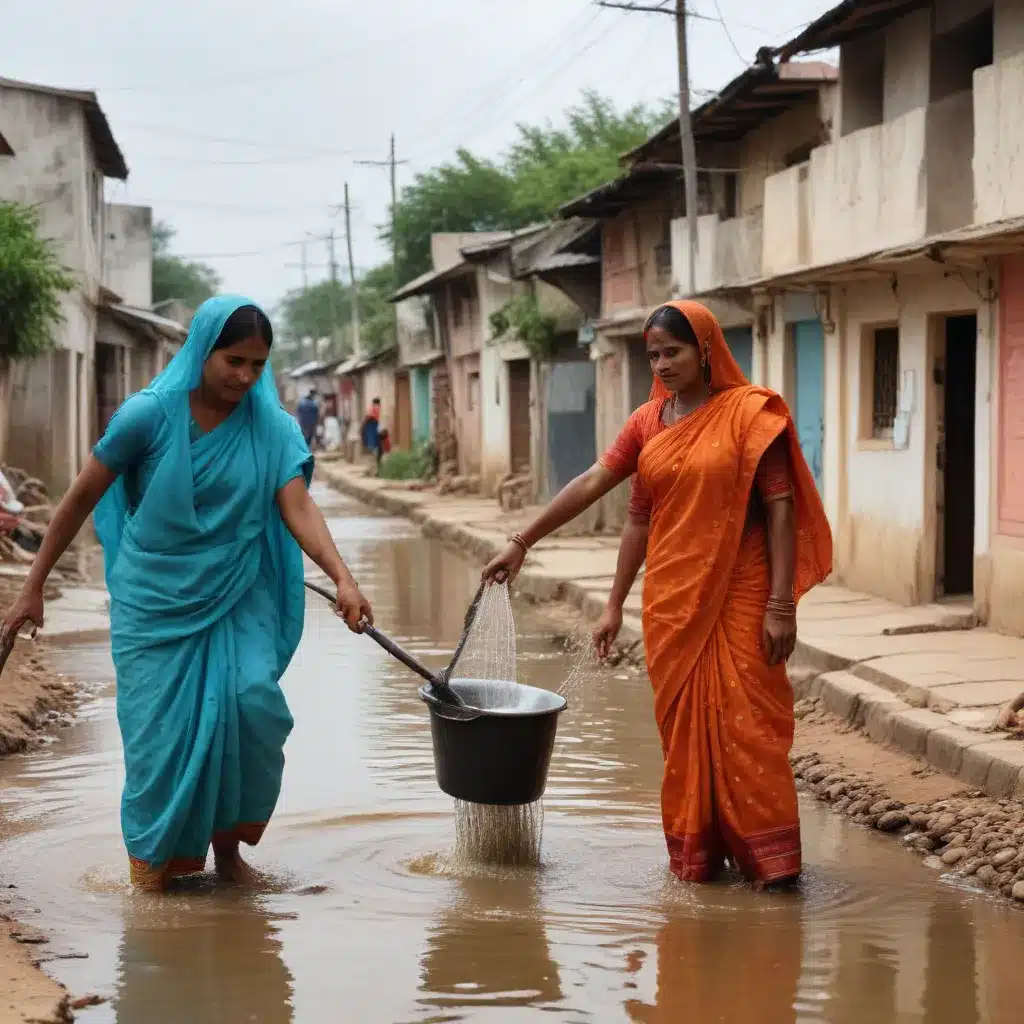
Addressing the Intersection of Water, Sanitation, and Climate Change Impacts
Hyderabad, a bustling metropolis in Pakistan, faces a pressing challenge at the intersection of water, sanitation, and climate change. As a rapidly urbanizing city, Hyderabad grapples with the dual pressures of providing adequate water and sanitation services to its growing population while also preparing for the increasing frequency and intensity of natural disasters driven by climate change.
In this article, we explore how a community-driven, WASH-focused approach to disaster risk reduction can enhance the resilience of Hyderabad’s vulnerable populations and lay the foundation for a more sustainable and climate-adaptive future.
Understanding the Hyderabad Context
Hyderabad, the second-largest city in the Sindh province, is home to over 1.7 million people, many of whom reside in informal settlements or underserved areas. The city’s water and sanitation infrastructure has struggled to keep pace with the rapid urbanization, leading to significant gaps in service delivery.
According to the World Bank report on strengthening disaster resilience in Indonesian cities, urban areas in developing countries often face the dual challenge of inadequate WASH services and heightened vulnerability to climate-related hazards. This scenario is all too familiar in Hyderabad.
The impacts of climate change, such as more frequent and intense flooding, droughts, and heat waves, further exacerbate the city’s water and sanitation challenges. These environmental stressors can disrupt critical infrastructure, contaminate water sources, and increase the risk of waterborne diseases, disproportionately affecting the most vulnerable communities.
Empowering Communities through WASH-Focused Disaster Risk Reduction
To address these complex, interconnected issues, a holistic, community-driven approach to disaster risk reduction (DRR) is crucial. By focusing on WASH (Water, Sanitation, and Hygiene) as a key entry point, communities in Hyderabad can build their resilience and better withstand the impacts of climate-related disasters.
The National Adaptation Plan of Pakistan highlights the importance of integrating human mobility and displacement concerns into climate change adaptation strategies. This aligns with the need for a WASH-focused DRR approach that considers the unique vulnerabilities of displaced populations.
Conducting Community-Level Assessments
The first step in this process is to collaborate with local communities to conduct comprehensive assessments of their WASH-related vulnerabilities and disaster risks. This involves:
- Identifying high-risk areas prone to flooding, water scarcity, or sanitation breakdowns.
- Mapping the existing WASH infrastructure and services, including their resilience to climate-related hazards.
- Engaging community members, particularly marginalized groups, to understand their specific needs and concerns.
These assessments provide a solid foundation for developing targeted, community-driven DRR strategies.
Strengthening WASH Infrastructure and Services
Based on the assessment findings, communities can work with local authorities and civil society organizations to strengthen their WASH infrastructure and services. This may include:
- Upgrading or constructing climate-resilient water supply systems and sanitation facilities.
- Implementing water conservation and groundwater recharge measures.
- Improving solid waste management and drainage systems to mitigate flood risks.
- Establishing emergency WASH kits and temporary sanitation facilities for disaster response.
Importantly, these interventions should be designed with community input to ensure their long-term sustainability and ownership.
Fostering Community Preparedness and Response
Alongside infrastructure improvements, communities must be empowered to respond effectively to WASH-related emergencies. This involves:
- Establishing community-based disaster response teams trained in WASH-focused first aid and emergency response.
- Developing early warning systems and emergency preparedness plans that integrate WASH considerations.
- Conducting regular disaster drills and awareness campaigns to enhance community resilience.
- Strengthening linkages between communities and local authorities for coordinated disaster response.
By enhancing community preparedness and response capabilities, Hyderabad’s vulnerable populations can better safeguard their health and livelihoods during times of crisis.
Integrating WASH into Disaster Risk Reduction and Climate Adaptation Policies
To ensure the sustainability and scalability of WASH-focused DRR efforts, it is crucial to advocate for the integration of these principles into local and national policies. This can be achieved through:
-
Engaging with Local and Provincial Authorities: Collaborate with the Hyderabad Municipal Corporation, the Sindh provincial government, and the National Disaster Management Authority to advocate for the inclusion of WASH-DRR strategies in urban planning, climate change adaptation, and disaster management frameworks.
-
Promoting Multi-Stakeholder Partnerships: Foster partnerships between communities, civil society organizations, academic institutions, and the private sector to pool resources, expertise, and innovative solutions for WASH-DRR initiatives.
-
Strengthening Data Collection and Knowledge Management: Support the development of robust data collection and monitoring systems to track the impacts of WASH-DRR interventions, inform evidence-based policymaking, and facilitate knowledge-sharing among stakeholders.
-
Securing Sustainable Financing: Explore innovative financing mechanisms, such as climate adaptation funds and public-private partnerships, to ensure the long-term viability of WASH-DRR programs and infrastructure investments.
By integrating WASH-focused DRR strategies into broader policy frameworks, Hyderabad can build a more resilient and sustainable future for its communities, better equipped to withstand the challenges posed by climate change.
Conclusion: Empowering Hyderabad’s Communities for a Resilient Future
In the face of Hyderabad’s pressing water, sanitation, and climate change challenges, a community-driven, WASH-focused approach to disaster risk reduction offers a promising path forward. By empowering local communities to assess their vulnerabilities, strengthen critical infrastructure, and enhance their preparedness, Hyderabad can cultivate a more resilient and sustainable urban landscape.
Through collaborative efforts between communities, local authorities, and diverse stakeholders, Hyderabad can serve as a model for other cities in Pakistan and beyond, demonstrating the transformative potential of WASH-centered disaster risk reduction strategies. By prioritizing the needs and capacities of the most vulnerable, Hyderabad can pave the way for a future where every resident has access to clean water, adequate sanitation, and the resilience to withstand the impacts of climate change.

